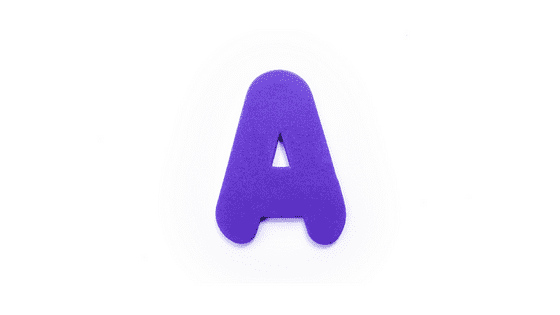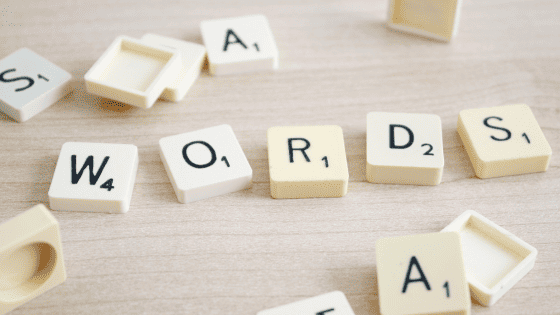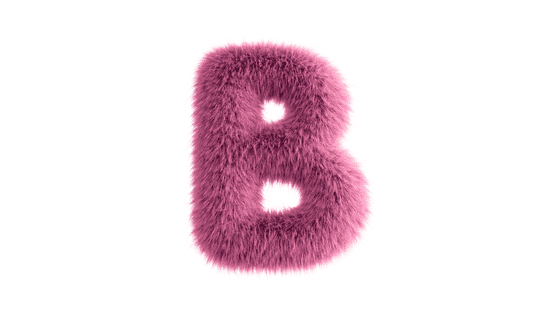Nouns To Describe A Person (Positive & Negative Nouns To Describe)
Nouns are words that can name or label people, capturing aspects like their jobs, relationships, qualities, backgrounds, and experiences.
They can also help paint a picture of who someone is, and help to describe a person.
How Can nouns describe a person?
Nouns can help describe people by indicating their roles (like ‘teacher’), relationships (like ‘sister’), professions (like ‘doctor’), characteristics (like ‘introvert’), and experiences (like ‘survivor’).
Additionally, they can denote cultural backgrounds (like ‘American’), religious beliefs (like ‘Buddhist’), titles (like ‘Captain’), and affiliations (like ‘volunteer’).
While nouns can serve as powerful tools to describe individuals, it’s crucial to use them thoughtfully and avoid perpetuating harmful stereotypes.
*It’s always best to describe people based on their self-identified terms and attributes, rather than making assumptions or resorting to clichés.*
List of Nouns To Describe A Person
Whilst primarily known as naming words for things, places, and ideas, nouns also have a profound capacity to describe people in various ways:
- Identity and Gender:
Basic nouns like ‘man’, ‘woman’, ‘boy’, ‘girl’, ‘transgender’, ‘non-binary’, etc., denote gender or age groups.
- Profession or Occupation:
These nouns give insight into a person’s skills, expertise, and often, their passions. For example:
-
- Doctor
- Engineer
- Teacher
- Artist
- Chef
- Lawyer
- Accountant
- Nurse
- Architect
- Journalist
- Scientist
- Pharmacist
- Pilot
- Musician
- Actor
- Dentist
- Farmer
- Electrician
- Plumber
- Programmer
- Designer
- Librarian
- Mechanic
- Manager
- Salesperson
- Cashier
- Writer
- Therapist
- Photographer
- Police Officer
- Firefighter
- Soldier
- Astronaut
- Veterinarian
- Entrepreneur
- Realtor
- Banker
- Biologist
- Welder
- Waiter/Waitress
- Roles and Relationships:
Nouns can also depict an individual’s roles in the social and familial context. For example:
-
- Mother
- Father
- Sister
- Brother
- Daughter
- Son
- Grandmother
- Grandfather
- Aunt
- Uncle
- Cousin
- Niece
- Nephew
- Spouse
- Partner
- Fiancé/Fiancée
- Husband
- Wife
- Ex-husband
- Ex-wife
- Stepfather
- Stepmother
- Stepsister
- Stepbrother
- Godmother
- Godfather
- Friend
- Best friend
- Girlfriend
- Boyfriend
- Mentor
- Protégé
- Colleague
- Classmate
- Roommate
- Neighbor
- Ally
- Rival
- Acquaintance
- Comrade
- Personal Characteristics:
These nouns offer insights into a person’s inherent qualities, inclinations, or tendencies, painting a picture of their personality and how they might approach the world around them. For example:
-
- Introvert
- Extrovert
- Optimist
- Pessimist
- Visionary
- Realist
- Leader
- Follower
- Adventurer
- Thinker
- Dreamer
- Innovator
- Rebel
- Conformist
- Scholar
- Philanthropist
- Maverick
- Enthusiast
- Perfectionist
- Minimalist
- Maximalist
- Romantic
- Cynic
- Strategist
- Empath
- Observer
- Competitor
- Pacifist
- Activist
- Idealist
- Procrastinator
- Mediator
- Organizer
- Charmer
- Listener
- Narrator
- Skeptic
- Guru
- Novice
- Aficionado
- Cultural or Ethnic Background:
Nouns like ‘American’, ‘Asian’, ‘Latino’, ‘Celtic’, or ‘Zulu’ can express a person’s cultural or ethnic origins, tying them to a specific group or heritage.
- Religious or Spiritual Affiliation:
Nouns such as ‘Christian’, ‘Muslim’, ‘Buddhist’, ‘atheist’, or ‘agnostic’ can shed light on a person’s belief system or spiritual inclinations.
- Social Status or Titles:
These titles and terms can denote a person’s rank, standing, or position within various societal, organizational, or hierarchical structures. For example:
-
- King
- Queen
- Prince
- Princess
- Duke
- Duchess
- Lord
- Lady
- Sir
- Baron
- Baroness
- Count
- Countess
- Marquess
- Earl
- Knight
- Dame
- Esquire
- CEO (Chief Executive Officer)
- President
- Vice-President
- Manager
- Director
- Executive
- Professor
- Admiral
- Sergeant
- Officer
- Chief
- Pastor
- Reverend
- Rabbi
- Chairman
- Ambassador
- Physical & Mental Attributes:
These nouns help to highlight certain inherent or developed characteristics in individuals, offering insights into their physical capabilities or mental prowess. It’s worth noting that while these terms can be descriptive, they should be used considerately to avoid pigeonholing or making assumptions about someone. For example:
-
- Giant
- Athlete
- Bodybuilder
- Acrobat
- Dancer
- Sprinter
- Model
- Swimmer
- Gymnast
- Genius
- Prodigy
- Philosopher
- Strategist
- Visionary
- Intellectual
- Thinker
- Analyst
- Dreamer
- Life Experiences:
These nouns encapsulate significant life events, situations, or phases that have influenced or shaped an individual’s journey, perspective, or identity. For example:
-
- Survivor (e.g., cancer survivor, trauma survivor)
- Veteran (e.g., war veteran)
- Graduate
- Alumnus/Alumna
- Immigrant
- Emigrant
- Expatriate (often shortened to “expat”)
- Traveler
- Explorer
- Pioneer
- Refugee
- Returnee
- Orphan
- Widow/Widower
- Retiree
- Survivor (in the context of surviving an accident or disaster)
- Convalescent (someone recovering from illness)
- Nomad
- Settler
- Intern
- Volunteer
- Apprentice
- Dropout (e.g., school dropout)
- Survivor (in the context of abuse or domestic violence)
- Activist
- Ambassador (in non-political contexts, e.g., brand ambassador)
- Trailblazer
- Detainee
- Centenarian (someone who has lived to or beyond the age of 100 years)
- Affiliations and Memberships:
These nouns represent a person’s involvement, association, or role within various groups, organizations, or causes, reflecting their interests, commitments, or passions. For example:
-
- Member
- Affiliate
- Alumni
- Associate
- Delegate
- Fellow (as in a member of a learned society)
- Fraternity/Sorority member
- Freemason
- Scout (e.g., Boy Scout, Girl Scout)
- Volunteer
- Delegate
- Devotee
- Disciple
- Follower
- Patron
- Supporter
- Subscriber
Positive Nouns To Describe A Person
The following list of nouns can be considered positive nouns as they convey admiration, respect, or appreciation for an individual’s qualities, skills, or impact.
Just some examples include:
- Champion
- Star
- Gem
- Hero/Heroine
- Luminary
- Visionary
- Genius
- Maestro
- Virtuoso
- Prodigy
- Trailblazer
- Innovator
- Mastermind
- Ace
- Guru
- Whiz
- Enthusiast
- Benefactor
- Philanthropist
- Advocate
- Mentor
- Scholar
- Leader
- Dynamo
- Expert
- Connoisseur
- Maven
- Aficionado
- Sage
- Pioneer
- Role model
- Guardian
- Optimist
- Peacemaker
- Empath
- Inspiration
- Motivator
- Beacon
- Trendsetter
- Life-saver
Negative Nouns To Describe A Person
The following list of nouns can be considered negative nouns as they tend to carry negative connotations. However, it’s important to remember that everyone is multi-faceted and complex.
Labeling someone based solely on one perceived negative trait can be misleading and unfair.
Always strive for understanding and empathy when describing or interacting with others.
Just some examples of negative nouns can include:
- Bully
- Tyrant
- Coward
- Bigot
- Snob
- Pessimist
- Cynic
- Gossip
- Scrooge
- Fraud
- Hypocrite
- Charlatan
- Pretender
- Slacker
- Leech
- Moocher
- Saboteur
- Traitor
- Defeatist
- Liar
- Scoundrel
- Cheat
- Miser
- Slanderer
- Naysayer
- Alarmist
- Deserter
- Hoarder
- Ruffian
- Menace
- Trickster
- Swindler
- Backstabber
- Egotist
- Braggart
- Show-off
From capturing one’s profession, background, and relationships to highlighting personal characteristics and life experiences, nouns provide insights into the diverse facets of human identity.
However, it’s essential to wield them with care and empathy, ensuring that our descriptions are accurate, respectful, and free from biases.
You may also like:





